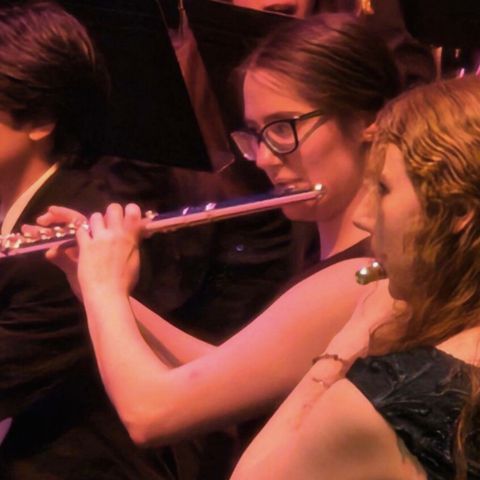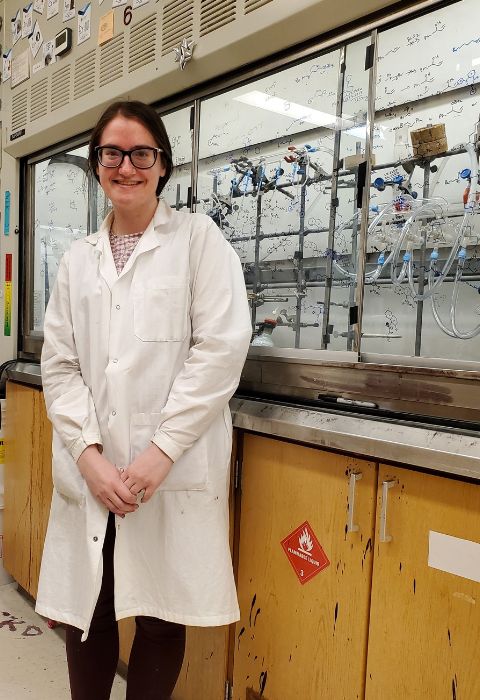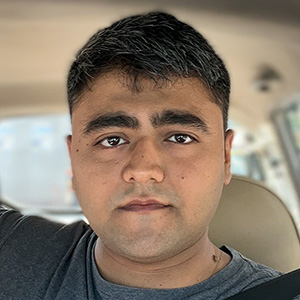Finding a symphony among complex molecules
Surrounded by the lakes and forests of northern Michigan’s Lower Peninsula, Stanna Dorn discovered a passion for music early on, despite a lack of formal training.

“Music was always a way to process emotion and express myself even when I didn’t have the chance to do that in other aspects,” Dorn said.
As a chemistry and music double major, she used music to escape the stresses of a scientific degree.
“Although it was incredibly challenging, I find that music provides a necessary balance in my life to the science,” Dorn said.
When she’d face obstacles in her chemistry coursework, Dorn turned to her flute, and vice versa.
Dorn graduated with a B.A. in music and B.S. in Chemistry from Hope College. She now has a Ph.D. in organic chemistry from Indiana University Bloomington and currently works as a postdoctoral researcher in Sarah Reisman’s lab at Caltech.
There, she works on total synthesis, a branch of organic chemistry focused on recreating complex molecules found in nature.
“Total synthesis is motivated by some natural source, for example — jellyfish produce a molecule that may have promising properties against some biological aspect that is interesting to study,” Dorn explained “But there are not enough jellyfish in the world to be able to meet the supply or to even test (this molecule). That is where synthetic chemists come in.”

Dorn focuses on bacterial metabolites. Her goal is to amass enough of these natural products to study their interactions with proteins, nucleic acids and more.
“We try to help access these molecules not only in an efficient way but also in a creative way in order to expand chemical knowledge about how we put molecules together.”
For this work, she received an American Society for Biochemistry and Molecular Biology’s Maximizing Opportunities for Scientific and Academic Independent Careers, or MOSAIC, award which supported postdocs and new investigators from diverse backgrounds who are embarking on careers at research-intensive institutions.
“The timing of the MOSAIC (was) meaningful to me because ten years ago I was taking intro to organic chemistry, and I almost failed out of it,” she said. “Organic chemistry has this reputation of being hard.”
Dorn’s future work will focus on creating novel methods to isolate and replicate bacterial metabolites of interest to human health. In her spare time, she still enjoys playing the flute and making music.
“Anytime you are working on a new method you are just exploring the unknown,” Dorn said.
Enjoy reading ASBMB Today?
Become a member to receive the print edition four times a year and the digital edition monthly.
Learn moreGet the latest from ASBMB Today
Enter your email address, and we’ll send you a weekly email with recent articles, interviews and more.
Latest in People
People highlights or most popular articles

From humble beginnings to unlocking lysosomal secrets
Monther Abu–Remaileh will receive the ASBMB’s 2026 Walter A. Shaw Young Investigator Award in Lipid Research at the ASBMB Annual Meeting, March 7-10 in Washington, D.C.

Chemistry meets biology to thwart parasites
Margaret Phillips will receive the Alice and C. C. Wang Award in Molecular Parasitology at the ASBMB Annual Meeting, March 7-10 in Washington, D.C.

ASBMB announces 2026 JBC/Tabor awardees
The seven awardees are first authors of outstanding papers published in 2025 in the Journal of Biological Chemistry.

Decoding how bacteria flip host’s molecular switches
Kim Orth will receive the Earl and Thressa Stadtman Distinguished Scientists Award at the ASBMB Annual Meeting, March 7–10, just outside of Washington, D.C.

Thiam elected to EMBO
He was recognized during the EMBO Members’ Meeting in Heidelberg, Germany, in October.

The timekeepers of proteostasis
Learn about the cover of the winter 2026 ASBMB Today issue, illustrated by ASBMB member Megan Mitchem.

